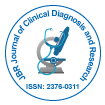Review Article
Event-Related Potentials in the Continuum of Alzheimers Disease: Would they Suit recent Guidelines for Preclinical Assessment?
Scally B*, Calderon PL2, Anghinah R3 and Parra MA4-81School of Psychology, University of Leeds, UK
2Department of Neurology, Chu Brugmann, Brussels, Belgium
3Department of Neurology, University of São Paulo Medical School, São Paulo, Brazil
4Department of Psychology, University Heriot-Watt, UK
5Scottish Dementia Clinical Research Network, NHS Scotland, UK
6Centre for Cognitive Ageing and Cognitive Epidemiology, University of Edinburgh, UK
7Diego Portales University, Psychology, Chile
8Universidad Autónoma del Caribe, Colombia
- *Corresponding Author:
- Brian Scally
School of Psychology, Faculty of Medicine and Health
University of Leeds, LS2 9JT, UK
Tel: +441133439197
E-mail: b.scally@leeds.ac.uk
Received Date: May 23, 2016; Accepted Date: June 24, 2016; Published Date: July 1, 2016
Citation: Scally B, Calderon PL, Anghinah R, Parra MA (2016) Event-Related Potentials in the Continuum of Alzheimer’s Disease: Would they Suit recent Guidelines for Preclinical Assessment? J Clin Diagn Res 4:127. doi: 10.4172/2376-0311.1000127
Copyright: © 2016 Scally B, et al. This is an open-access article distributed under the terms of the Creative Commons Attribution License, which permits unrestricted use, distribution, and reproduction in any medium, provided the original author and source are credited.
Abstract
There are theoretical and practical constraints associated with using molecular biomarkers in the diagnosis of Alzheimer’s disease (AD) during preclinical stages when patients are asymptomatic. Event-related potentials (ERPs) provide an affordable measure of neurological functioning and have been used extensively to measure the onset and progression of cognitive decline in AD. However, the traditional paradigms used to elicit ERPs in the context of AD are influenced by unwanted factors such as ageing, cultural background and education, as well as other neuropsychiatric conditions and comorbidities. We propose that a revision of the task domain is necessary to increase the sensitivity and specificity of ERP measurements. Performance on the short-term memory binding task (STMBT) is highly specific to AD and mirrors the trajectory of neurological pathology in preclinical samples. Theorydriven cognitive assessments, electrophysiology and the emergence of mobile neuroimaging systems may serve as a fundamental combination to overcome the challenges of diagnosing preclinical AD.

 Spanish
Spanish  Chinese
Chinese  Russian
Russian  German
German  French
French  Japanese
Japanese  Portuguese
Portuguese  Hindi
Hindi